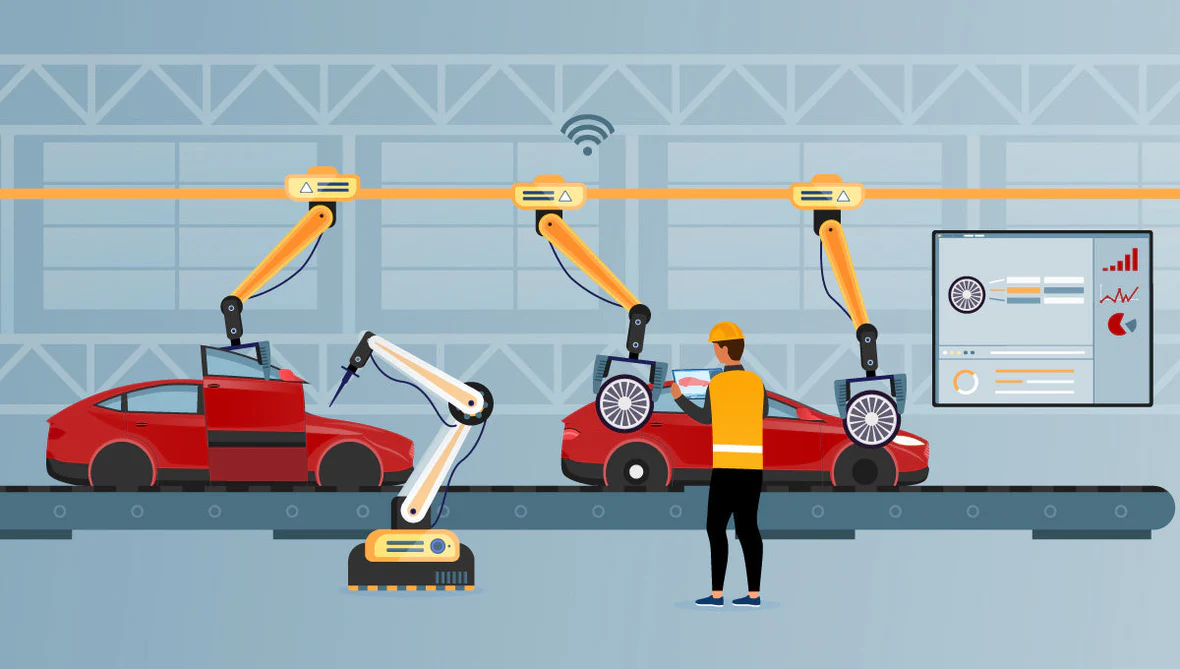
Transforming the Automotive Supply Chain: Innovations Ahead
Frequently Asked Questions
1. What are the key challenges facing automotive supply chains today?
2. How is automation impacting the automotive supply chain?
3. What role does artificial intelligence play in supply chain operations?
4. How are automotive companies addressing sustainability in their supply chains?
5. What future trends are expected in automotive supply chains?
The automotive sector has been experiencing tremendous change over the past few decades, and the pace of innovation within the supply chain is accelerating. From technological advancements to strategic partnerships and the integration of sustainable practices, the need for a robust supply chain has never been more critical. As the industry adapts, companies are exploring innovative solutions that enhance efficiency, reduce costs, and improve environmental sustainability. In this blog post, we will explore some of the major supply chain innovations transforming the automotive industry and how they can impact your business.
The Current Landscape of Automotive Supply Chains
Automotive supply chains traditionally rely on a multi-tier structure, where manufacturers, suppliers, and distributors work in sync to deliver parts and vehicles efficiently. However, the shift towards globalization, electrification, and autonomous vehicles has complicated this landscape. Companies are now facing challenges, including:
- Increased demand for faster delivery times.
- Rising consumer expectations for diverse and sustainable products.
- Global disruptions leading to supply shortages.
Technological Advancements Driving Change
Innovation in technology is at the forefront of supply chain transformation. Here are some of the prevailing trends:
Automation and Robotics
Automation is reshaping the way automotive companies handle manufacturing, warehousing, and delivery logistics. The use of robotics enhances assembly line efficiency, minimizes human error, and reduces labor costs. Collaborative robots, also known as cobots, can work alongside human workers to streamline processes while maintaining safety and productivity.
Artificial Intelligence and Data Analytics
AI and data analytics are crucial for optimizing supply chain operations. By leveraging big data, automotive companies can analyze market trends, customer preferences, and demand forecasts to make informed decisions. AI algorithms help in predictive maintenance, ensuring vehicles remain operational while minimizing downtime. Companies can benefit from real-time monitoring of inventory levels, enabling them to respond quickly to fluctuations.
Blockchain Technology
Blockchain is revolutionizing the way information is shared across the automotive supply chain. By providing a secure and transparent system for tracking parts and products, blockchain helps to reduce fraud and increase accountability. This technology enables real-time tracking of components from suppliers to manufacturers, guaranteeing authenticity and compliance with quality standards.
Sustainability Initiatives in Supply Chains
As the world shifts towards greener practices, sustainability has become a fundamental aspect of supply chain management in the automotive sector. Here’s how companies are making strides in this area:
Electric Vehicle Supply Chains
The rise of electric vehicles (EVs) has necessitated a complete reevaluation of supply chains. From sourcing raw materials for batteries to establishing recycling programs for old units, the EV supply chain requires innovative practices. Automotive manufacturers are forming partnerships with raw material suppliers to ensure sustainable sourcing while optimizing logistics to reduce emissions.
Circular Economy Practices
Adopting circular economy principles is becoming increasingly popular across the automotive industry. By designing vehicles and components for longevity, reuse, and recycling, companies aim to minimize waste. This approach extends to implementing take-back programs for end-of-life vehicles, ensuring materials are repurposed rather than discarded.
Collaborative Supply Chain Networks
Collaboration has emerged as a cornerstone of modern supply chain strategy in the automotive industry. Here are some ways this manifests:
Strategic Partnerships and Alliances
By partnering with other manufacturers, suppliers, and technology providers, automotive companies can pool resources and knowledge. This collaborative approach fosters innovation and can lead to developing new materials, parts, and processes that benefit all stakeholders involved.
Industry Consortia and Standards
Establishing industry consortia helps participants work together on common goals, such as setting standards for safety and sustainability. These alliances can drive advancements that individual companies might not achieve on their own, leading to enhanced product quality and consumer trust.
Enhancing Customer Experience through Supply Chain Innovations
Supply chain innovations don’t just improve efficiency—they also enhance the overall customer experience. Here are some key aspects to focus on:
Customization and Flexibility
Today's consumers seek personalized experiences and products tailored to their needs. By leveraging innovative technologies, companies can develop supply chains that offer extensive customization options, allowing customers to choose various features or components for their vehicles.
Improved Transparency
Consumers increasingly desire to know where and how their products are made. By providing transparent supply chain information, companies build trust with customers and differentiate themselves in a competitive market. Whether through interactive tracking systems or detailed product histories, transparency enhances brand loyalty.
Challenges to Overcome in Supply Chain Innovations
While the benefits of innovative supply chain solutions are abundant, automotive companies face significant challenges:
Integration of New Technologies
One of the prominent hurdles is effectively integrating new technologies into existing systems. Transitioning to automated processes, AI-driven systems, or blockchain solutions can be complex and requires careful planning and training of the workforce.
Supply Chain Resilience
Disruptions—such as pandemics, natural disasters, or geopolitical tensions—can severely impact supply chains. Companies need to develop strategies that enhance resilience, such as diversifying suppliers, implementing risk management systems, and maintaining safety stock for critical components.
The Future of Automotive Supply Chains
As advancements continue to drive the automotive industry forward, the future of supply chains looks promising. Emerging trends indicate a shift towards more adaptive, transparent, and sustainable practices. Some anticipated developments include:
Continued Automation and AI Development
As technology evolves, expect to see deeper integration of automation and AI solutions. Predictive analytics will become more refined, supporting real-time decision-making and optimizing inventory and logistics.
Greater Focus on Cybersecurity
As supply chains depend more on technology, cybersecurity will become increasingly crucial. Automotive companies will need to invest in securing sensitive data and protecting systems against cyber threats to maintain trust with stakeholders.
Driving Towards a Bright Future
The innovations in automotive supply chains have the potential to create a significant impact on efficiency, customer satisfaction, and sustainability. By embracing new technologies, enhancing collaboration, and focusing on sustainable practices, companies can ensure a competitive edge in an ever-evolving landscape. As the automotive sector continues to innovate, it is crucial for businesses to stay abreast of these changes and adapt proactively. The road ahead is filled with opportunities, and those who are willing to embrace innovation will undoubtedly thrive.





















